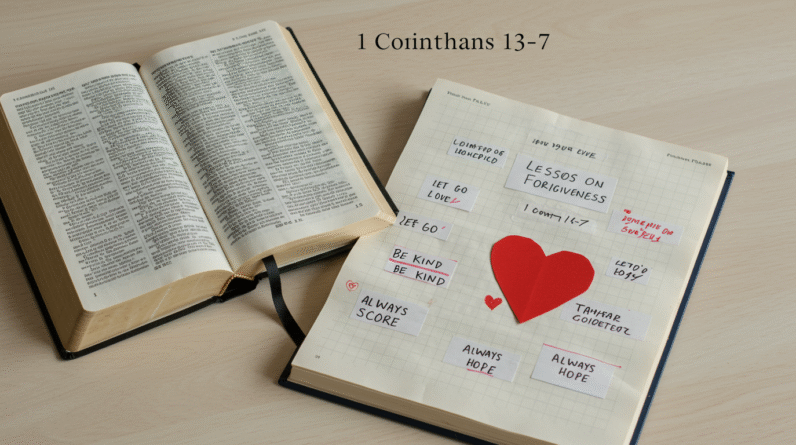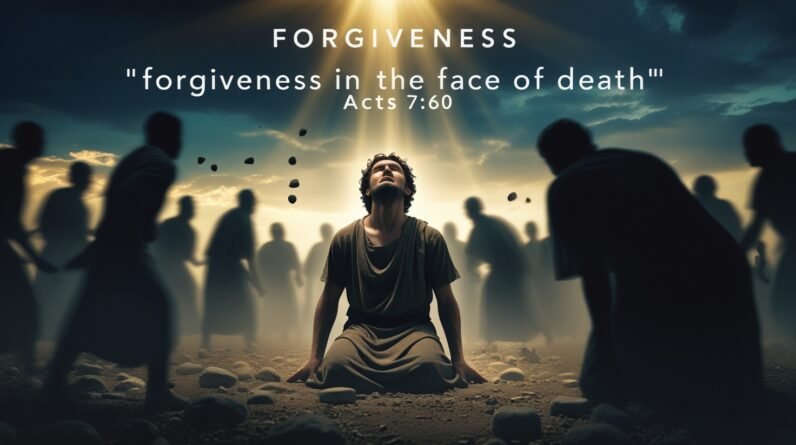Discover the transformative power of Romans 12:20-21. Learn how love and kindness can overcome conflict and inspire change in a divided world.
Verses to Live By – Romans 12:20-21
Introduction
In the hustle and bustle of everyday life, we often find ourselves seeking wisdom and strength from a myriad of sources. Yet, in the pages of the Bible, there exists a timeless trove of guidance, offering comfort and clarity to those who seek it. Among these precious scriptures, some shine as beacons of hope and moral compass. Today, we dive into Romans 12:20-21, exploring why these verses are not merely to be read, but to be embodied—verses to truly live by.
These verses serve as a powerful reminder of the transformative power of love, urging us to choose kindness and compassion over revenge. Amidst conflict and difficulty, Romans 12:20-21 provides profound guidance on how to conduct ourselves and not be overcome by evil, but instead to overcome evil with good.
Verse Reference
Romans 12:20-21 (NIV)
“If your enemy is hungry, feed him; if he is thirsty, give him something to drink. In doing this, you will heap burning coals on his head. Do not be overcome by evil, but overcome evil with good.”
Meaning and Interpretation
At first glance, Romans 12:20-21 may seem paradoxical, especially the imagery of heaping burning coals on someone’s head. However, when delved deeper, these verses unfold a profound teaching on love, mercy, and moral courage. Written by the Apostle Paul to the believers in Rome, these words convey a radical departure from the world’s conventional wisdom of revenge and retaliation.
The historical context here is crucial. Paul’s audience lived in a society where retribution was expected and sometimes celebrated. Yet, Paul advocates for a different path, one that follows the teachings of Christ. To “heap burning coals on his head” is a metaphor drawing from ancient Eastern culture, where such an act symbolized repentance and transformation. By showing kindness to an adversary, you may induce a genuine reflection and change of heart in them.
Personal Reflection
In today’s world, where animosity and division seem pervasive, Romans 12:20-21 offers a countercultural approach to conflict. These verses challenge us to rise above our instinctual need for revenge and instead practice deliberate acts of kindness. Imagine a world where reactions to hostility are met with unexpected generosity and love—how transformative that could be.
For me, these verses challenge my natural inclinations and compel me to view adversarial relationships through a lens of compassion. It’s about choosing not to let negativity dictate my responses. I’ve found that when I’ve responded to negativity with unexpected kindness, it not only changes the mood but often diffuses the tension entirely. These experiences reinforce the notion that love truly is more powerful than hate.

Life Application
Applying Romans 12:20-21 to daily life requires a conscious decision to act against our immediate emotions and prejudices. Here’s how you can incorporate these teachings into your everyday interactions:
- Practice Empathy: When faced with opposition, endeavor to understand the situation from the other person’s perspective. This opens the door to compassionate responses rather than defensive or aggressive reactions.
- Mindful Reactions: Pause before reacting to negativity. Consider how you might respond in a way that aligns with these verses, perhaps through a kind word or deed.
- Be the Peacemaker: Actively seek to reconcile differences. Often, an apology or a simple act of kindness can defuse tension and build bridges.
- Spread Positivity: Consciously choose to spread acts of kindness and love in your community. Your actions can start a ripple effect, inspiring others to do the same.
Closing Thought
Living by Romans 12:20-21 isn’t an easy path, but it promises personal growth and peace. As you engage with others—friends and foes alike—let these verses guide your actions and reflect the transformative power of compassion and kindness. By overcoming evil with good, you play a crucial part in creating a more harmonious world.
As a ClickBank Affiliate, I earn from qualifying purchases.
Acknowledgment: All Bible verses referenced in this article were accessed via Bible Gateway (or Bible Hub).
“Want to explore more? Check out our latest post on Why Jesus? and discover the life-changing truth of the Gospel!”








